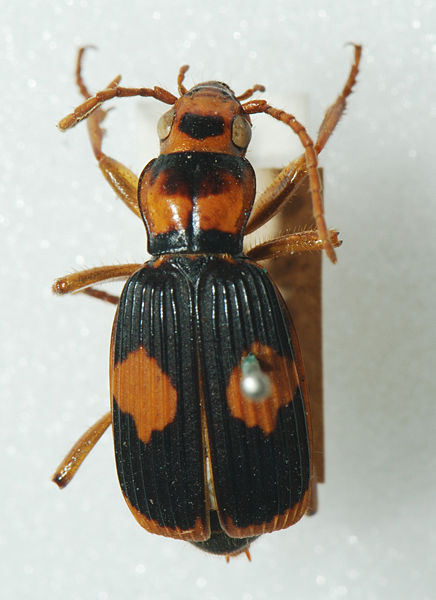Beetle Antimicrobial peptides
 Sitophilus, a type of beetle, have an intimate relationship with bacteria. They produce an antimicrobial peptide to control the bacteria but when it is missing, the bacteria are able to invade throughout the beetle's body.
Sitophilus, a type of beetle, have an intimate relationship with bacteria. They produce an antimicrobial peptide to control the bacteria but when it is missing, the bacteria are able to invade throughout the beetle's body.
Similar to the 'friendly' gut bacteria which aid human digestion, some beetles also carry bacteria inside them. These bacteria are passed from one generation to another and give the beetles an advantage, especially when nutrients are limiting, as they can help digest otherwise inedible food. Under normal conditions the bacteria are contained within bacteriocytes, specialised structures to house the bacteria, or within the eggs, oocytes, so the bacteria will be passed onto the next generation.
It is important to contain these bacteria and stop the invasion of pathogens. To do this various antimicrobial peptides are produced, and work carried out by Frédéric Login and colleges published in Science this week highlights the activitiy of one in particular, coleoptericin-A, which is shortened to colA. ColA stops pathogen invasion and retains the endosymbionts - the bacteria - within bacteriosomes and oocytes. It does this by stopping the bacteria from dividing and so keeping them under control and 'domesticating' them.
When the gene encoding the antimicrobial colA was turned off, the bacteria were seen to escape from the bacteriocytes and invade the entire insect. Although this didn't lead to increased beetle mortality under lab conditions, it could be detrimental in the wild. Because the beetles are known cereal pests, further work could look at using this information to make specific pesticides. This in turn could reduce crop damage and make sure there is more food for humans and our 'friendly' bacteria.
- Previous Cause of chronic fatigue?
- Next The Importance of Sitting on Genes




Comments
Add a comment